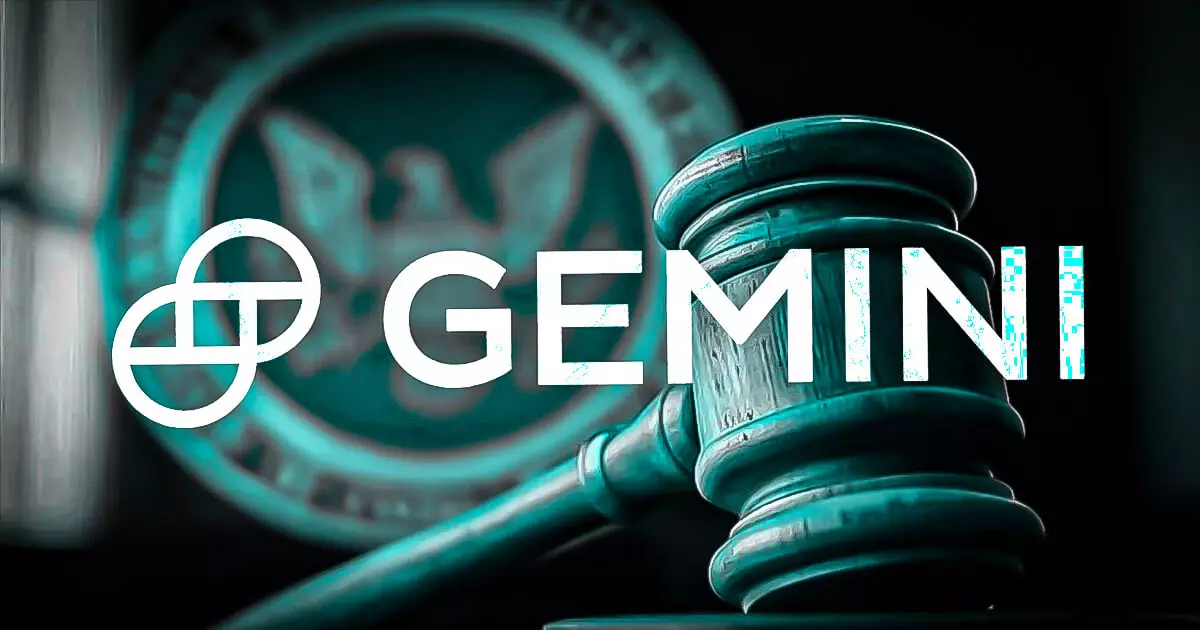The United States Securities and Exchange Commission (SEC) has often been at the center of debates regarding cryptocurrency regulations. As the field navigates uncharted waters, the SEC’s investigative and enforcement actions have sparked significant concern among industry leaders and innovators. Cameron Winklevoss, co-founder of the cryptocurrency exchange Gemini, has been particularly vocal about the ramifications of the SEC’s recent legal maneuvers. Following the announcement on February 26 that the SEC had closed its investigation into Gemini without filing any charges, Winklevoss expressed dissatisfaction, highlighting the harsh consequences of the SEC’s prolonged scrutiny on his company and the broader crypto ecosystem.
The Cost of Prolonged Investigations
Winklevoss argued that the nearly two-year investigation inflicted substantial financial damage on Gemini. He estimates the exchange incurred tens of millions in legal fees, a burden that has diverted resources away from innovation and productivity. The SEC’s drag on the investigation not only strained Gemini’s finances but also significantly impacted the company’s ability to contribute to the growth of the cryptocurrency sector and, by extension, the U.S. economy. The entrepreneurial spirit of the blockchain industry is contingent upon an environment that encourages rather than stifles innovation, and the SEC’s aggressive tactics have, according to Winklevoss, created an atmosphere of fear among tech innovators.
The consequences extend beyond financial losses for a single company. Winklevoss argues that the regulatory clampdown has stifled creativity and deterred potential new entrants into the market. Many promising projects may have been abandoned mid-development or never initiated due to the SEC’s hostile enforcement environment. This ripple effect raises serious concerns about the future of innovation within the cryptocurrency space and the overall technological landscape in the United States.
A Call for Reform and Accountability
In light of these challenges, Winklevoss proposed a radical reform of how regulatory bodies, including the SEC, operate—especially concerning their investigations into companies that serve as the backbone of the future economy. He suggested that if investigations result in no charges, companies should be reimbursed for triple their legal expenses. This kind of accountability could serve as a deterrent against unwarranted investigation practices while reaffirming regulatory bodies’ commitment to fair play.
Additionally, Winklevoss called for significant consequences for SEC officials whose actions lead to unfounded or baseless enforcement. He suggested such officials should be permanently disqualified from holding agency positions in the future. This idea of accountability mirrors practices in other sectors where individuals can face career ramifications for abusing their authority or failing in their responsibilities.
Winklevoss’s critique underscores a vital but often overlooked aspect of regulatory oversight—the need for accountability within the SEC and similar agencies. The narrative that emerges from his statements paints a picture of a fractured relationship between cryptocurrency innovators and regulatory bodies tasked with safeguarding public interest. Without mechanisms to hold regulators accountable for their actions, innovation risks being perpetually stifled, with the potential loss in economic growth echoing throughout the country.
As the cryptocurrency landscape evolves, it is essential for regulatory bodies to strike a balance between enforcement and fostering an environment conducive to innovation. For the future of digital finance and the American economy, trust must be rebuilt in these agencies. Implementing stringent accountability measures for regulatory overreach could protect the interests of innovators while reassuring the public of regulatory intent. Only through accountability can we ensure that the next wave of technological advancement is not suppressed by fear and uncertainty, but rather driven by ambition and ingenuity.














